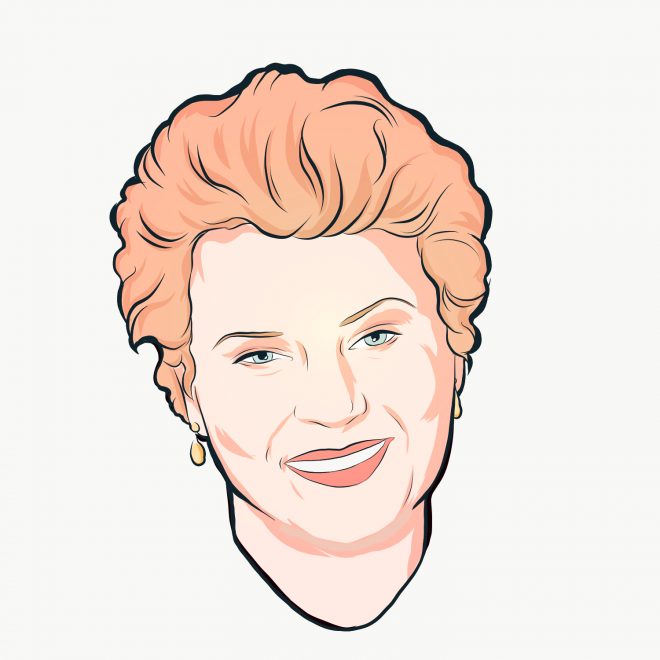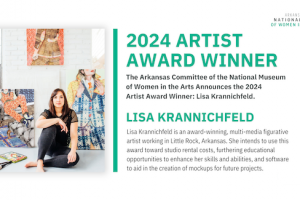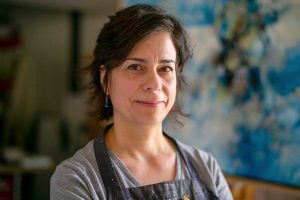THE LEGACY ISSUE: The Writer

Charlaine Harris is a best-selling author known primarily for her mystery series Southern Vampire Mysteries (adapted by HBO as True Blood) and Aurora Teagarden. She grew up in Tunica, Mississippi, and attended Rhodes College in Memphis where she began writing plays. For twenty years, she lived with her family in Magnolia. Rural Arkansas and Louisiana have served as settings for many of her books including her Shakespeare series. She is a member of the Mystery Writers of America and has served as the president for the Arkansas Mystery Writers Alliance.
Why did you first begin writing?
I was born wanting to write. The minute I learned how to print letters on paper, I was hooked. So I would say in the second or third grade I was writing things to read to my class.
I read that you wrote plays while attending Rhodes College. How was the switch from writing plays to a novel for you? Was it a difficult adjustment?
I was experimenting with plays because I wasn’t ready to take the plunge into writing novels, which was my goal. Writing anything is hard, and switching forms is always a challenge, but in this case it was a natural progression.
When did you begin writing mysteries?
When I married my second husband, he gave me the green light to stay home and write. It was a great, great, luxury. I had always known I wanted to write mysteries, because that was what I read, so in the first year (I think) I wrote a book.
Why does the public love mystery stories over other genres?
It’s the only original American literary form, so I like to think that’s one reason. Mysteries are an escape to a world where peril is second-hand, which is comforting . . . and a world where justice almost always prevails.
Let’s talk about your first novel. What was the process to get it published?
I had the good fortune to be taking a class in creative writing at UMSL, and my teacher was a former employee of Houghton Mifflin. To telescope the story, she recommended the book to an editor HM, and that editor accepted it.
To our understanding, your first two novels were standalone stories. Why did you decide to start writing a book series?
I hoped it would increase my readership and therefore my sales. Series were becoming ever more prominent. I found I really enjoyed not having to reinvent the wheel each time, to have the leisure to develop characters more thoroughly, to chronicle lives along with the individual mystery of each book.
Did you ever receive any writing advice that really stuck with you? If so, what was it?
I didn’t know there were books about writing, I didn’t know there were conventions where people met to discuss and honor mysteries, and there wasn’t the Internet. So I don’t recall any advice, which is sad.
What would be your advice for telling a good story?
You can start by analyzing a book you think is great. What’s the rhythm of the story? What appeals to you about it? Do you remember the characters after you close the book? Do you want to read about them again?
What elements make up a good mystery?
The same elements that make up all good books: a cohesive plot, vivid characters, and good dialog.
What are the essentials to creating a good character?
Knowing the character thoroughly. You don’t have to lay the character out in your head before you begin to write (some people do). You just have to know what that character would do in any given situation. Start with what he or she carries everywhere: in pockets, or in a purse or backpack. What environment produced this person?
Do you plot your work out well in advance or just see where the story takes you?
The story takes me. That’s an exciting and dangerous way to write, and sometimes means I waste a lot of time. But it’s more fun for me than planning, and I’m all about not being bored.
Have you ever taught writing?
I have taught a few classes, but teaching is not my gift. I’m never sure if the students really learn anything or not.
What is your writing process like—are you up at 6 a.m. pounding the keys or are you a night owl?
I am certainly no night owl. I work from about 7:30 [a.m.] to one, though work might include answering emails, ordering supplies, and so on. I sometimes work in the afternoon, too, especially when a deadline is looming.
Has the pandemic affected your creative output?
Yes, sadly, it’s made me slow as a sloth.
Who are some people in your life you would cite as influences that helped you get to be the storyteller you are today?
The many writers I read growing up: E. X. Ferrars, Jane Austen, Daphne du Maurier, Agatha Christie, Charlotte Brontë, Rex Stout, Michael Gilbert, Ray Bradbury, and on and on and on.
Why do you think small, rural towns make good settings for a story?
There’s a closed society in any book, really. With small towns, that’s geographically determined. In a city, the story determines it. There’s a challenge in trying to hide a crime in a town where everybody knows who you are, what you do, and when you do it.
Do you maintain any Arkansas connections?
Oh, gosh, yes. We lived there twenty years.
Are there any ways living in Arkansas affected your work that we haven’t discussed?
I was fascinated by the courtesy and kindness. Granted, I knew that had to be variable since I was a white middle-aged middle-class woman, but people would always stop to help you, complete strangers.
What are you working on now?
My fourth Gunnie Rose book. The third one, THE RUSSIAN CAGE, comes out this week!
Looking back on your body of work, what are some highlights from your career?
It’s certainly been a long career, forty years. I’ve had some great adventures, gone to some amazing countries, and walked the red carpet at a Hollywood premiere. I’ve met people I never imagined I’d meet. Most dear to my heart, I’ve gotten three lifetime achievement awards: one for romance, one from Malice Domestic (which celebrates the cozy mystery), and this year the Edgar Award, presented by the Mystery Writers of America.
Is there anything else you’d like to mention?
Becoming a writer requires persistence, most of all.





Comments